Try for free today
4 Overlooked Effects of a Disrupted Circadian Rhythm
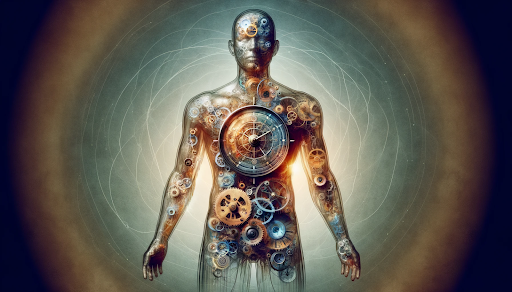
From the time light was invented, we’ve become a 24 hour society. The boundaries separating night and day have blurred. Shift work got introduced and people are working at night and sleeping during the day. The exact opposite of normal. This modern lifestyle has caused our circadian rhythm or the body clock to go haywire.
Circadian rhythm is the sleep-wake cycle of our body which ensures that all our body functions occur in a synchronised manner. This body clock actually helps our body to function normally.
About 16% of the U.S. population are shift workers. That’s almost 51 million people exposed to the life-threatening effects of a disrupted circadian rhythm. We have found some worrying facts about how a disrupted circadian rhythm can cause fatal diseases.
Alora present’s 4 Overlooked Effects of a Disrupted Circadian Rhythm: A report
In this report, we have analysed various studies conducted to find out major health problems caused due to a disrupted circadian rhythm. And the results are pretty sad. A disrupted circadian rhythm can cause cancer.
The main objective of this report is to present those findings in a manner that’s easy to understand and to make everyone get more serious about their sleep-wake cycle. Because these health effects don’t get noticed in a day or two. They surface when it’s already too late to change anything.
Not just facts. At the end, you’ll know whether you can fix your circadian rhythm naturally or not. Plus, we also have a solution for you to help you in this journey!
What causes a disruption in Circadian Rhythm?
Night shift work is one of the most common reasons that throws off the body’s natural sleep-wake cycle, causing circadian misalignment. Frequent travel across different time zones causes jet lag, which causes temporary disruptions in circadian rhythms. Also, exposure to artificial light at night can cause this disruption as well.
Here’s how the stats look like in the U.S.:
Do you find these facts worrisome?
Yes. Very much
No.
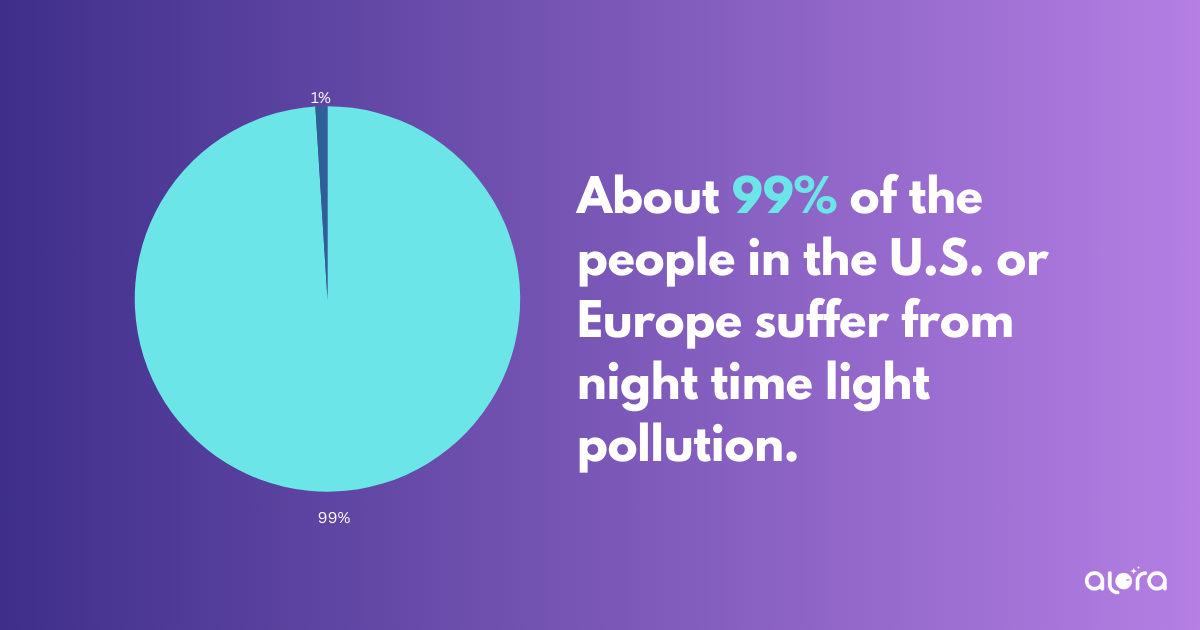
4 effects of a disrupted Circadian Rhythm on health
#1 Mental Health: Pay attention Night Owls!
Various studies have found that a disrupted circadian rhythm is linked to mental health disorders like depression, anxiety, bipolar disorders and schizophrenia. Sometimes these conditions are responsible for causing havoc to your body’s clock. But irregular sleep-wake timing can further increase the severity of these conditions. Plus, it’s also proved that regularising circadian rhythm has improved mental health conditions. Key Findings:
“It’s interesting to examine the link between circadian rhythm disorders and mental health, particularly in persons with delayed circadian rhythm disorder — i.e., extreme night owls.” - Alicia Roth, Ph.D., of Cleveland Clinic’s Sleep Disorders Center.
Are you a shift worker?
Yes.
No.
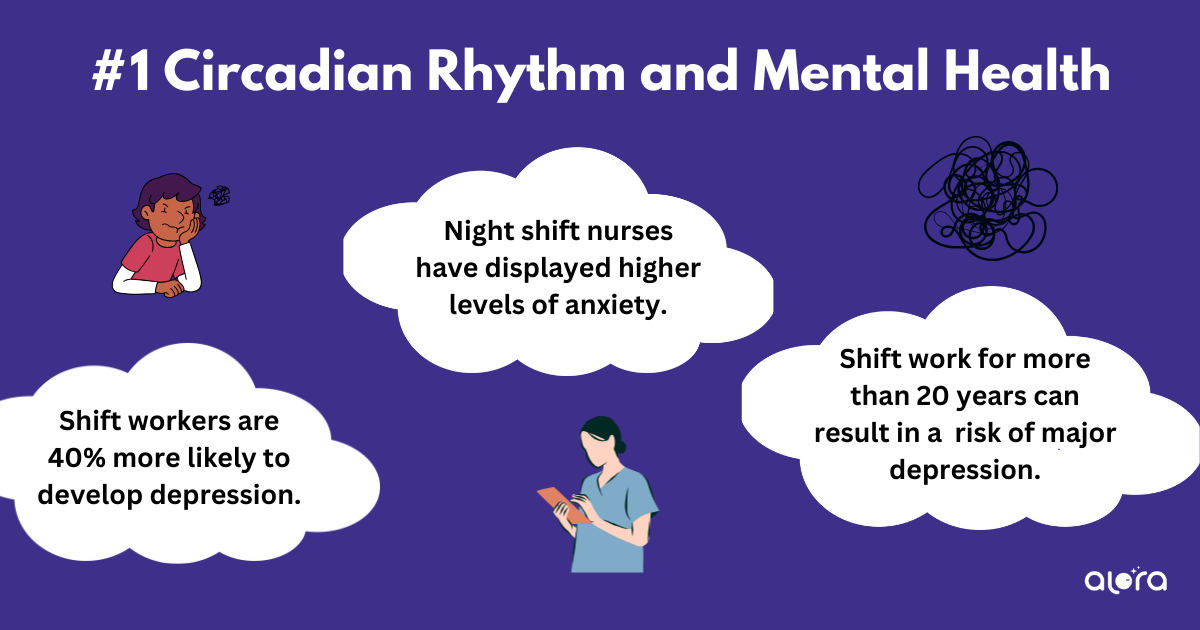
#2 Heart: Shift workers and Night Owls are at greater risk
Do you know that studies have found different heart structures in ‘early birds’ and ‘night owls’? Ample research is conducted around the world to understand the relation between heart function and impaired circadian rhythm. Turns out shift workers are at a higher risk of heart diseases.
Key Findings:
So, are you still going to call yourself a night owl?
Proudly yes.
No. Think I’ll change.
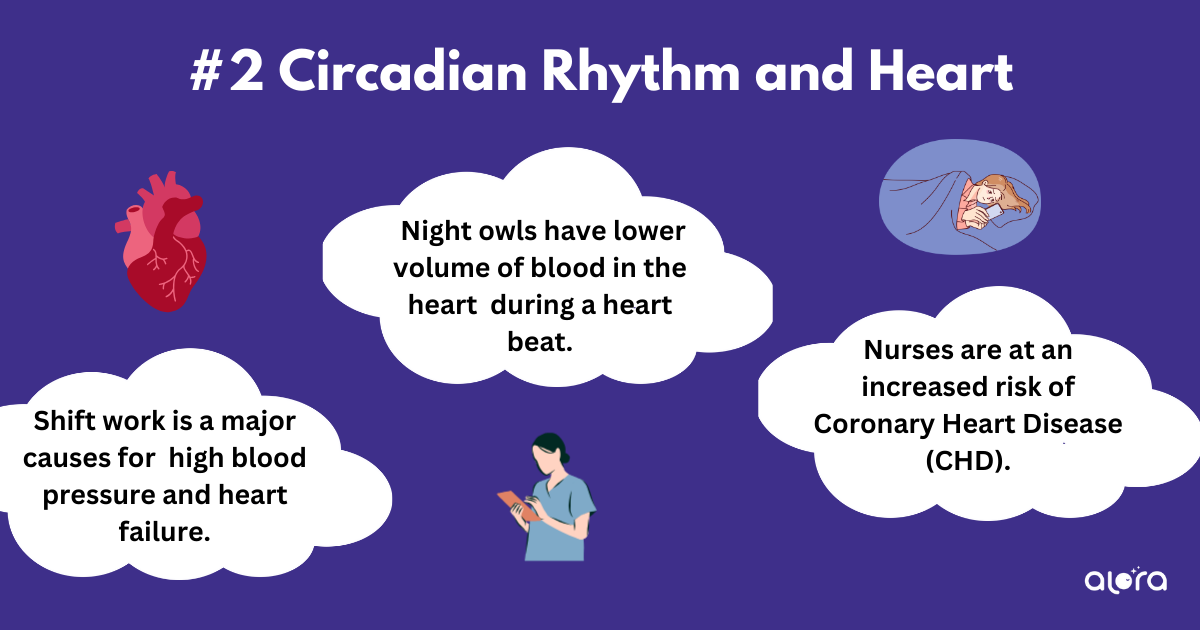
#3 Metabolism: Night owls have higher chances of obesity
Circadian Rhythm is the key factor that controls the metabolic processes in the body. That means breaking the food into energy, using and storing that energy. Certain hormones which are linked to your body clock control all these processes. Messing up your body clock also messes up the way you eat.
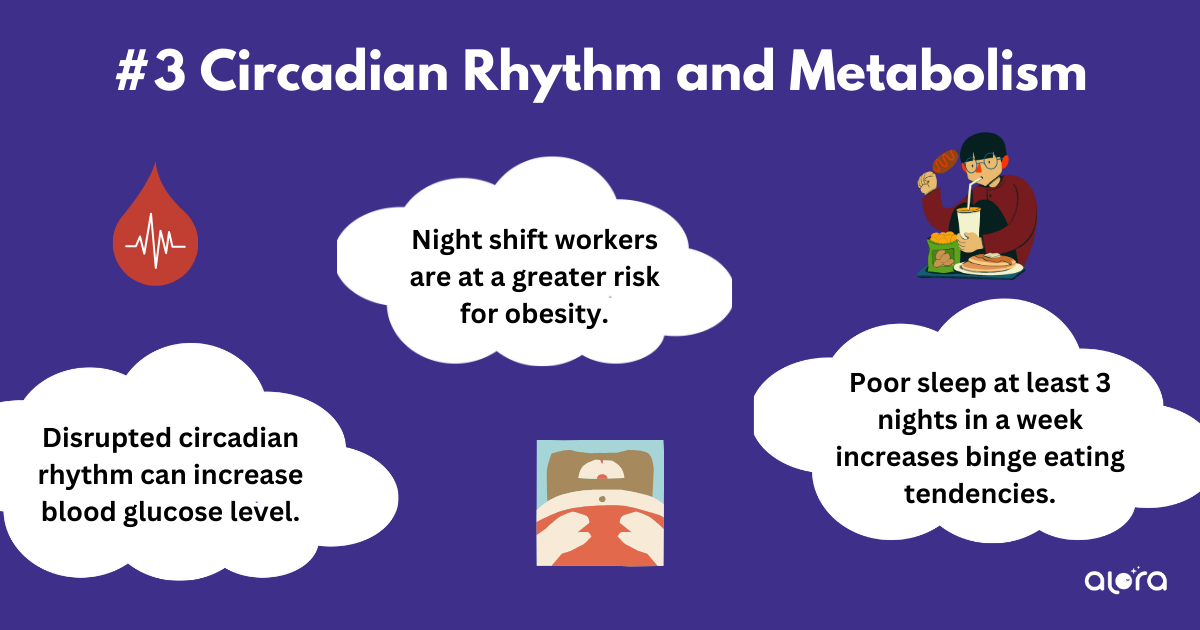
#4 Cancer: Night shift work is a probable carcinogen
Did you know that the WHO, in 2007, labelled shift work as a “probable carcinogen” causing breast cancer in women? Carcinogens are those agents which induce the formation of cancer cells. Large number of studies are being conducted to find the association between a disrupted circadian rhythm and cancer. Turns out a disrupted circadian rhythm triggers the formation of cancer cells, as we found in these studies.
Are you still going to work in night shifts?
Yes. What choice do I have?
No. Need to change my job.
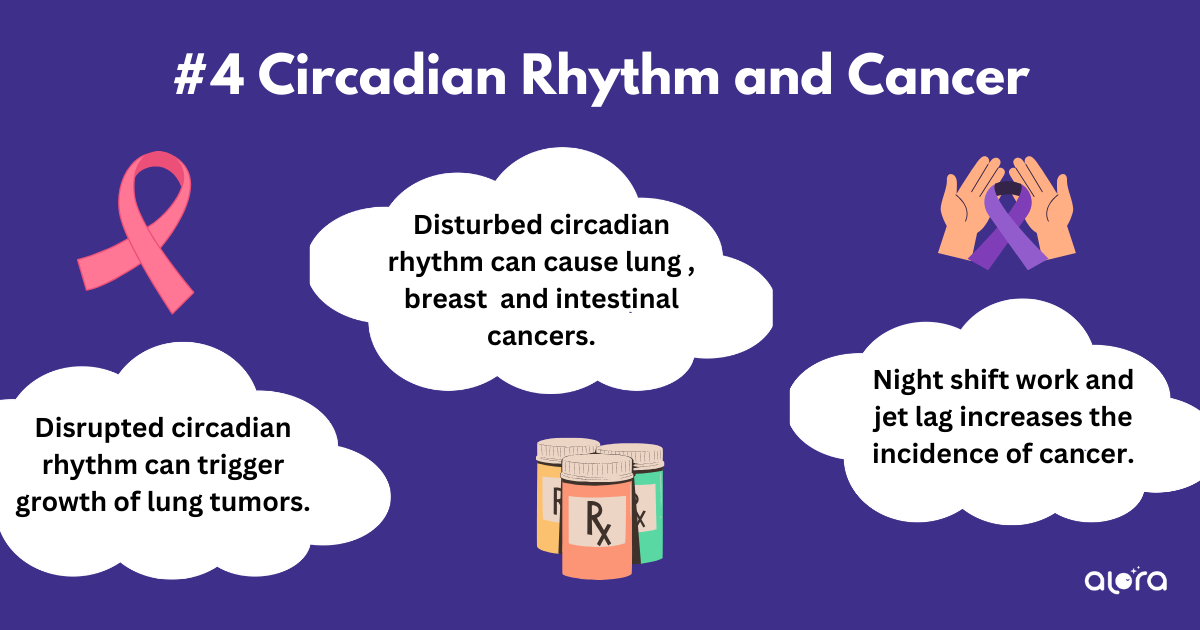
Can you fix your body clock naturally?
You can absolutely fix and reset your body’s natural sleep-wake cycle. Eliminating all those reasons that mess up your body clock and adopting some healthy lifestyle changes can save you from the wrath of a disrupted circadian rhythm.ry right? Always get your required sleep!
Exposure to natural light in the morning helps to regularise your internal clock. Jonathan Cedernaes , Ph.D., a sleep specialist at Uppsala Universitet says,
“Ideally, one would, for example, wake up and go to bed at the same time every day, and also eat at the same time every day.”
Limiting screen time and reducing exposure to artificial light can immensely help with fixing your body clock. Get to bed at the same time and try sleeping in complete darkness.
Can’t Sleep? We have a solution for you.
We all know that changing sleep timings won’t happen in a day, especially if you’re a night owl. So you’ll need help with falling asleep faster and sleeping in your desired time. The main part of fixing your natural sleep-wake cycle is going to bed on time.
Fall asleep faster and experience a restful night's sleep with Alora, your sleeping companion. We have a curated collection of sleep sounds just for you to help you calm down and relax in just a few minutes.
Not just sleep sounds, but there are bedtime stories for those who love to drift away in deep sleep listening to stories. There’s something for all!
References
Quinn GE, Shin CH, Maguire MG, Stone RA . Myopia and ambient lighting at night. Nature 1999; 399: 113–114.
Scott AJ, Monk TH, Brink LL . Shift work as a risk factor for depression: a pilot study. Int J Occup Environ Health 1997; 3: S2–S9.
Lee, A. et al. Night shift work and risk of depression: meta-analysis of observational studies. J. Korean Med. Sci. 32, 1091–1096 (2017).
Malkoff-Schwartz, S. et al. Social rhythm disruption and stressful life events in the onset of bipolar and unipolar episodes. Psychol. Med. 30, 1005–1016 (2000).
Antúnez JM (2020) Circadian typology is related to emotion regulation, metacognitive beliefs and assertiveness in healthy adults. PLoS ONE 15(3): e0230169.
Potter, G. D., Skene, D. J., Arendt, J., Cade, J. E., Grant, P. J., & Hardie, L. J. (2016). Circadian Rhythm and Sleep Disruption: Causes, Metabolic Consequences, and Countermeasures. Endocrine reviews, 37(6), 584–608.
Latest Reports and Studies

The Sleep-Anxiety Conundrum Report
Literally everyone is experiencing anxiety and sleep disturbances in this fast-paced modern life. Nearly 4% of the world population suffer...

The Myth of Sleep as Wasted Time
Did you know that a significant number of Americans think sleep is a waste of time? In this report we're going to discuss just that...
A Proven Hack for Sleep Alora
78% of users reported reduced anxiety with our sounds. Listen now.
Soft Rain
00:00
00:00
Found it interesting?
Try Alora today
